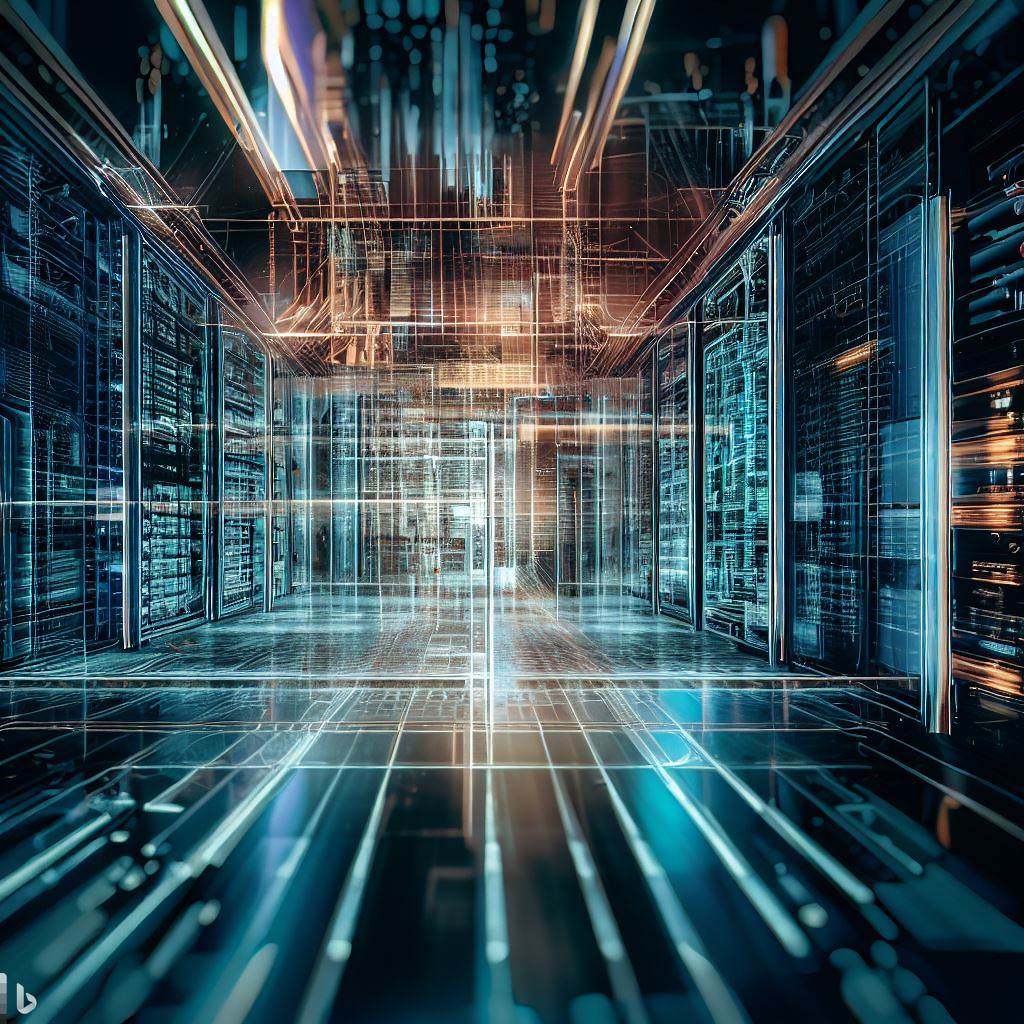
Data centers, the heartbeats of our digital world, have undergone significant transformations over the past few decades. As we project into the future, several trends and innovations will further shape the evolution of data centers:
- Sustainability and Green Data Centers: Environmental concerns will drive data centers to be more energy-efficient. Adoption of renewable energy sources, advanced cooling techniques, and waste heat recovery methods will become standard practices.
- Edge Computing: With the rise of IoT and the need for faster data processing, data centers will move closer to the source of data generation, leading to the proliferation of smaller, localized data centers, also known as edge data centers.
- AI and Automation: Artificial intelligence will play a key role in optimizing data center operations, predicting maintenance needs, and improving energy efficiency.
- Hyper-Scale Data Centers: Tech giants like Google, Amazon, and Microsoft will continue to build massive, hyper-scale data centers to cater to the increasing demands of cloud computing and storage.
- Liquid Cooling: As servers become more powerful and generate more heat, traditional air cooling methods will become inefficient. Liquid cooling, which is more efficient and takes up less space, will become more widespread.
- Modular and Prefabricated Data Centers: These are essentially “data centers in a box” – pre-built modules that can be easily transported and assembled on site, allowing for rapid deployment and scalability.
- Interconnected Data Ecosystems: Data centers will not work in isolation but will be part of interconnected global ecosystems, allowing for seamless data transfer and backup solutions.
- Advanced Security Protocols: With increasing cyber threats, data centers will incorporate advanced physical and cyber security measures, including biometric access, AI-driven threat detection, and quantum encryption.
- Serverless Computing: This model can reduce the complexity of deploying code into production. The cloud provider will dynamically manage the allocation of machine resources, further streamlining operations.
- Quantum Computing: As quantum computing moves from theory to practice, data centers will need to accommodate these ultra-powerful machines, which have distinct operational and cooling needs.
- Immersive Data Center Management: Virtual reality (VR) and augmented reality (AR) will be used for remote data center management, allowing technicians to “walk through” a data center from thousands of miles away.
- DNA Data Storage: Research is ongoing on using DNA sequences to store data. Given its potential to store vast amounts of data in a microscopic space, it could revolutionize data center storage techniques.
In summary, the future of data centers lies in their adaptability, efficiency, and sustainability. As data generation and consumption grow exponentially, the backbone supporting this digital universe will need to be robust, agile, and forward-thinking.
